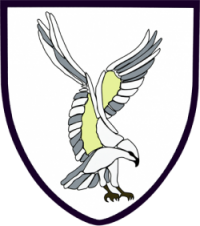P31, W16, D3, L12, Pts for 202, Pts against 127.
Club Captain : Charlie Coke
Leading Try Scorer : H Whapham and Charlie Coke 8
Leading Points Scorer : Bancroft 40
Capped v England : Billy Bancroft, Billy McCutcheon, Frank Mills
Capped v Scotland : Billy Bancroft, Billy McCutcheon, Frank Mills
Capped v Ireland : Billy Bancroft, Billy McCutcheon, Frank Mills, David Samuel
Charlie Coke was elected to the captaincy of Swansea and immediately had problems on his hands. The James Brothers would not play this season. A poor showing was the result of an unbalanced side in the early part of the season with Barnstaple and Devon exposing the uncertainty in the Swansea backs. The Whites held their first indoor training session as even the well draining St Helens pitch was declared too waterlogged to practice on. Former Swansea player and captain, William Gwynn supervised the indoor sessions. Cardiff were beaten at home but the crowd was a disappointing 3,000 and then Newport beat Swansea at Rodney Parade though Coke’s Swansea men played well against a strong Newport side and much of the game reduced to 14 through injury. Encouraged, they beat Llanelli in front of a crowd of 7,000 at St Helens to give much cheer to the Swansea faithfull.
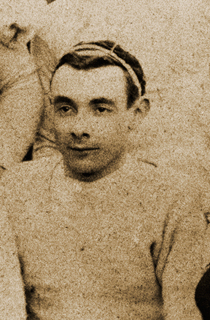
Charlie Coke a skillfull three-quarter back, first played for Swansea in 1890 and played in the famous Unofficial Championship of Britain win over English Champions Blackheath in 1891. he captained Swansea in 1982-93 and though suffering an injury struck season to the squad and himself, was well supported by Billy Bancroft in endevouring to put out a competetive side.
With the James Brothers now banned by the English Union from playing for English Clubs after a meeting, the WFU echoed the decision by refusing to sanction their transfer to Manchester team, Broughton Rangers. The Swansea tour games in Lancashire and against London Hospitals meant the forwards and three-quarters had to redouble their efforts with the absence of such star players. A game at St Helens against Cardiff ended in crowd trouble as the referee reversed a decision to award a try that would have won the game for the home team. A later ruling by the WFU awarded the try and game to Swansea which evoked similar wrath in Cardiff! But the Swansea Club were warned to prevent a repeat of the disturbances.
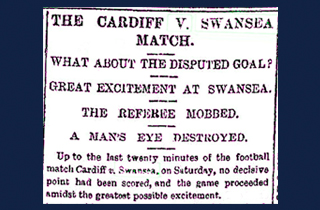
This striking headline in the article above was taken from the Western Mail of 7th Nov 1892. It describes the match at St Helens on the Saturday where tempers rose in the second half. Teddy Thorogood of Swansea having just failed with a drop goal attempt, made a second attempt inside the Cardiff 25 and was sure he’d scored a winning kick when the referee, Theo Harding from Newport agreed with the home crowd in the grandstand and confirmed to Swansea’s Sam Rice, that the score counted. D W Evans who’d grappled with smith of Swansea for the ball when it landed then brought it over to the referee who seemed to change his mind and called “No Goal”. When the final whistle ended the match, it was awarded to Cardiff. A riot ensued and the referee, becoming separated from the players and, jossled by the home crowd, “lost his hat”. Alledgedly, blows were struck apon him before the police were able to isolate him. D W Evans’ vehicle outside was attacked by crowds throwing lumps of turf from the pitch when one lump hit another passenger (a Mr Rickard) and put his eye out. An appeal by the Swansea Club to the Welsh Football Union is recorded in their Minute Books on 11th Nov 1892 and the match result overturned but a warning issued that a repetition of the scenes would result in “…. the closing of their ground for such period as the committee may determine”. Cardiff refused to play Swansea in the coming season though relations were patched up in the coming months.
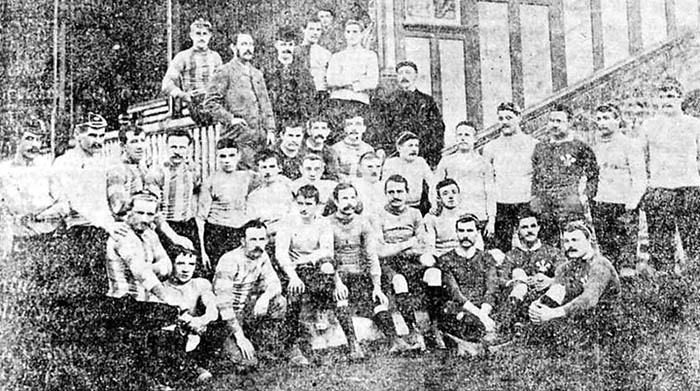
Following the injury to Mr Rickard after the Cardiff match, the Swansea club decided to hold a benefit match to raise money for the unfortunate man. A Veteran Swansea side took on players from the current Swansea first fifteen at St Helen’s on Thursday 8th December 1892 in front of a large crowd. the Veteran team included many old favourites like Bill Gwynn, Billy Bowen, George James and were captained by George Bowen. The current team won by a try to nil. the photograph above was made of the combined teams, the Veterans in striped jerseys, though George Bowen, Billy Bowen, Meredith, Dai Morgan, Tom Williams and Deacon wore their Wales jerseys:
Back Row(L to R): A Wolff, E C Copus (Umpire), E M Jones, Dickson Burnie, A Whapham, T Russell.
3rd Row(L to R): G Bowen, W Bowen, D Williams.
2nd Row(L to R): W Smith, J Samuel, H Bevan, G James, W Wilcocks, T Roberts, C Coke, E Thorogood, A Lewis, S Rice, D Samuel, J Meredith, W J Bancroft, A Lewis.
Front Row(L to R): W Williams, P Jones, W H Gwynn, J Morgan, J Thomas, J Davies, T Blackmore, D Morgan, T Deacon, T Williams.
Losses to Neath and a draw with Abercarn were typical of the run of form with a shortage of hardened campaigners and injuries including the frequent absence of skipper Coke through injury. He did however manage to persuade the Samuel Brothers (David and John) to return and play (David was capped in the game against Ireland this season) and a hard fought draw away at Llanelli stopped the slide in form. In January the Club overcame a frozen St Helens pitch by laying straw prior to the visit of Gloucester which meant it was one of the few games played in Wales. The English side were beaten by 3 tries to1. Billy Bancroft was currently playing at centre for Swansea and was a staunch supporter of Charlie Coke in his efforts to see The Whites through the disruptions in selection. He was awarded despite his youth (22 yrs), with the captaincy the following season. Charlie Coke, despite his injury struck season, end as top try scorer with Bancroft as top points scorer.
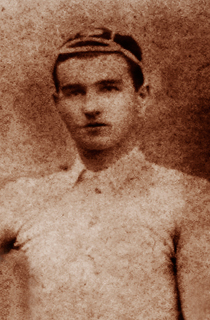
William Morgan McCutcheon played as a wing for Wales on 7 occasions between 1891 and 1894, having started out as a full-back for Swansea.
Three players represented Swansea in the Welsh teams against England and Scotland and four against Ireland as Wales gained their first ever Triple Crown in this season. In the first of the games in Cardiff on 7th January,Wales beat England for only the second time (the first time was in 1890). The game was remembered firstly for the great frost the night before which froze the pitch hard and forced the Welsh Union into the novel remedy of installing coal braziers called ‘devils’ overnight which heated the ground up (though scorching it too!) to allow play. the second significant event came towards the end of the game after Wales had been awarded a penalty and the Welsh skipper, the great Authur Gould who’d scored two tries, remonstrated with full back Billy Bancroft to place the kick whilst Bancroft insisted in attempting a drop kick. Gould withdrew throwing down the ball which Bancroft promptly drop kicked to score, turning round before the ball reached the posts to shout to Gould that he’d succeeded. He seemed the only player on the pitch to know the International Board had changed the scoring system with effect that morning. A drop kick’s worth had changed from 2 pts to 3 and although many in the crowd thought he’d drawn the match, the kick placed Wales to win against England (12 – 11) for the fist time on Welsh soil. Swansea forward Frank Mills gained the 4th of 13 caps in this match and his Swansea team mate Billy McCutcheon gained his 4th of 7 on the wing. Scotland were beaten away for the first time at Raeburn Place, Edinburgh on 4th February by 9 to nil with Bancroft getting a penalty kick and Billy McCutcheon a try. Frank Mills again joined them in representing the Swansea Club. The Triple Crown was won on 11th March with a narrow 2 to nil win over Ireland as Stradey Park hosted its second International (since England in 1887). Bancroft, McCutcheon and Mills were joined in this game by Swansea forward David Samuel who won the second of 2 Welsh caps (both against Ireland) thus passing his brother John who was also a Swansea forward and won one Welsh cap (also against Ireland in 1891).
